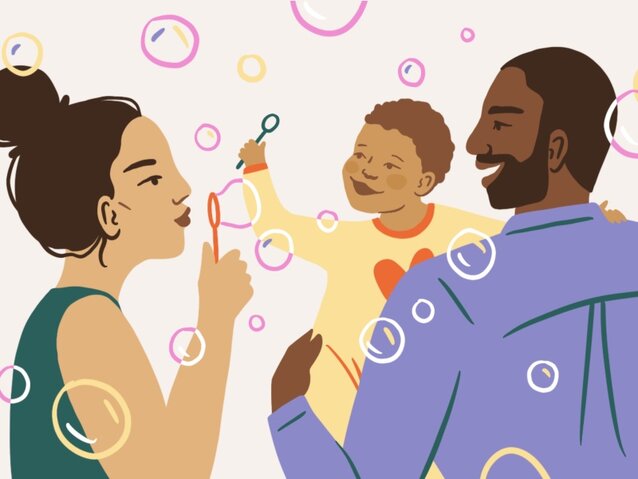
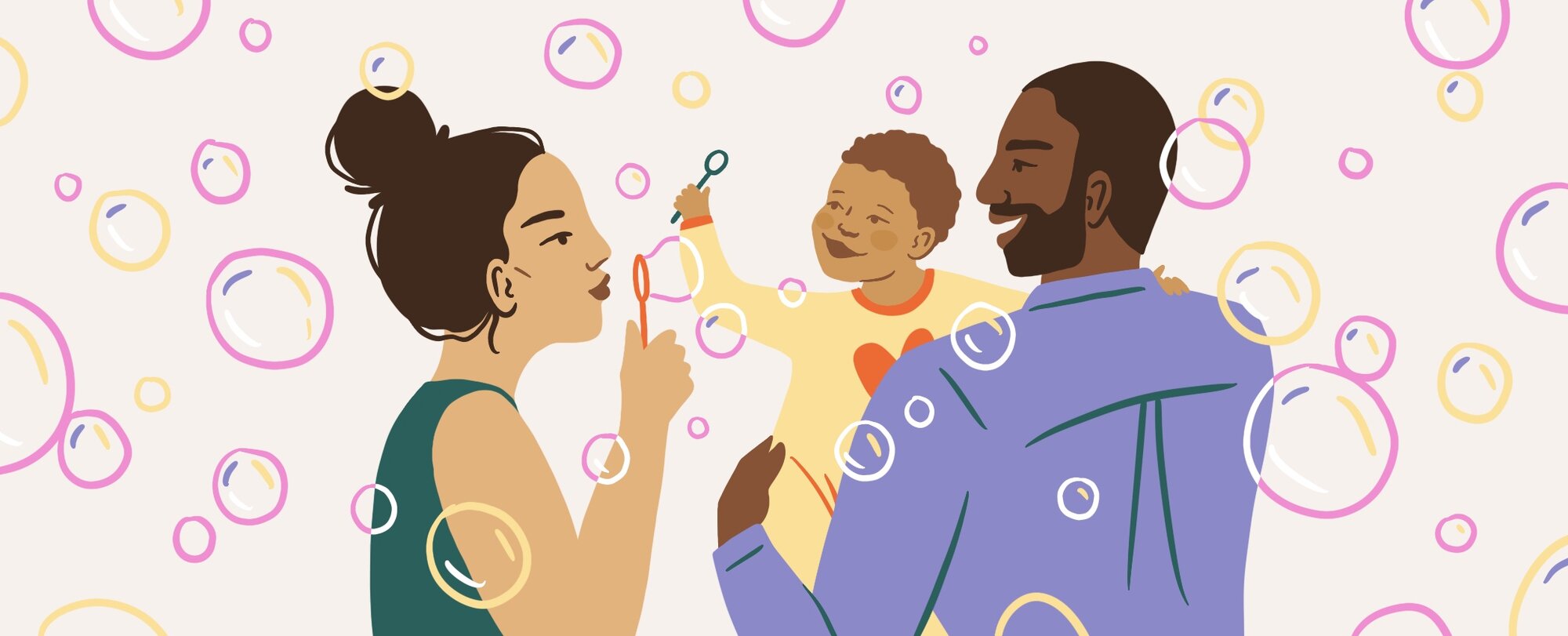
New Parents: These Are the Common Misconceptions About RSV, the Leading Cause of Hospitalization in Babies Under Age 1
Published on 12/17/2024 at 12:05 PM
When your baby starts sneezing or coughing, it's tempting to write it off as the common cold. Many parents don't realize, though, that these symptoms can also be signs of respiratory syncytial virus (RSV), an infection that can lead to more severe respiratory illnesses like bronchiolitis and pneumonia.
Even if parents are aware of RSV, many don't have a complete understanding of what it is — or that it's the leading cause of hospitalization for babies less than 1 year of age. As board-certified obstetrician-gynecologist and mother of two Jessica Geida, DO, explains, although most of the time RSV will cause mild cold-like symptoms, it can be much more serious. "For high-risk groups, RSV can be very dangerous," she says. Dr. Geida notes that babies attending day care and babies with older siblings who could potentially infect them with RSV are at particular risk.
Something Dr. Geida wishes more parents knew is how to spot the warning signs. Keep reading to discover five of the most common myths and misconceptions about RSV — and what parents need to know.
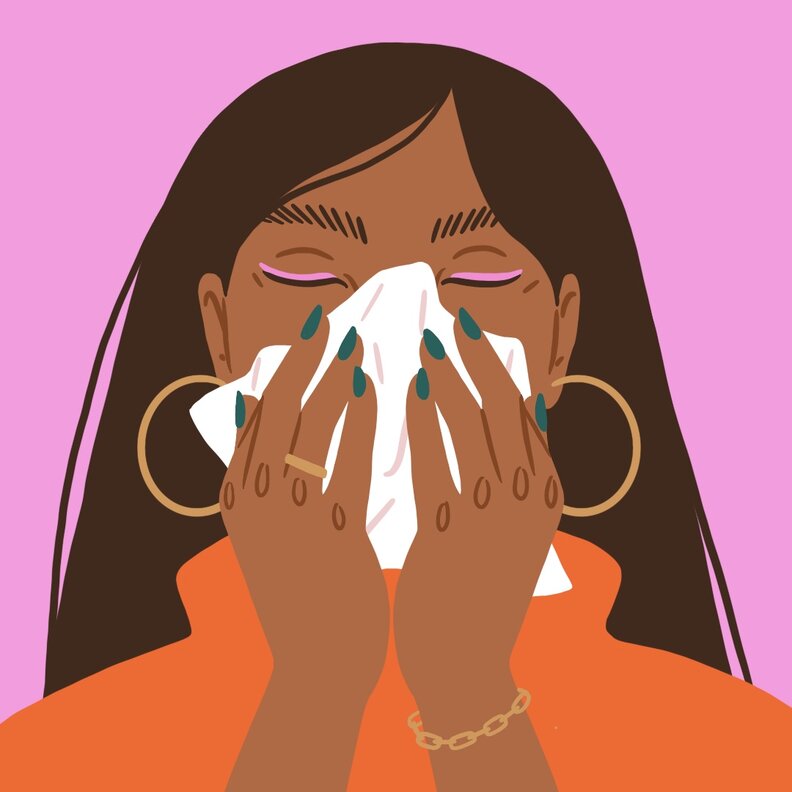
Myth: RSV Is Exactly Like the Common Cold
The symptoms of RSV and the common cold look very similar at first: sneezing, cough, runny nose, and decreased appetite. Unlike a typical cold, though, the symptoms of RSV can escalate to labored breathing, wheezing, and fever — and can even require hospitalization. "When compared to the common cold, RSV ... more often causes fever, difficulty breathing, and wheezing," explains Dr. Geida. On the other hand, the common cold often causes runny nose, cough, and congestion, and is less likely to go to their lungs than RSV. Because bronchiolitis makes it difficult to breathe, RSV is particularly dangerous for babies under 1.
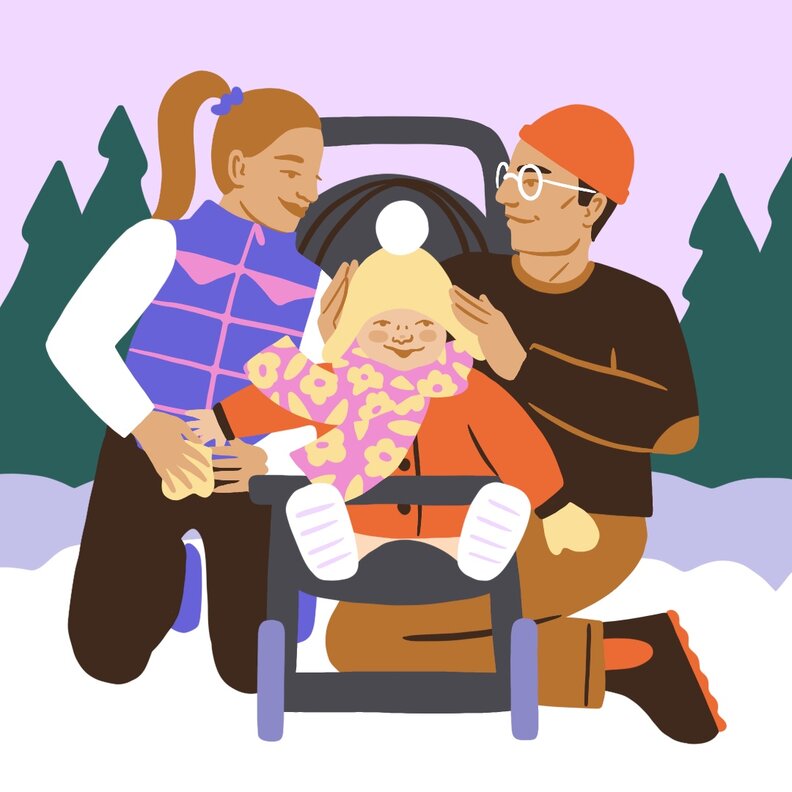
Myth: You Can Only Get RSV in the Winter
Like the flu and the common cold, RSV is most prevalent in the winter. The typical RSV season usually occurs from fall through spring, but can vary by local area. That's not the only time of year you can get RSV, though: Dr. Geida says RSV can be spread year-round in certain ares of the country like Florida and Hawaii.
Myth: There's No Need to See a Doctor For RSV
It's easy to write off seemingly minor symptoms like a runny nose or occasional cough, but Dr. Geida says it's important to stay vigilant if you notice any symptoms of RSV in your children. When in doubt, it's better to exercise an abundance of caution. "Keep an eye out for signs and symptoms of severe infections and know when to go in for evaluation."
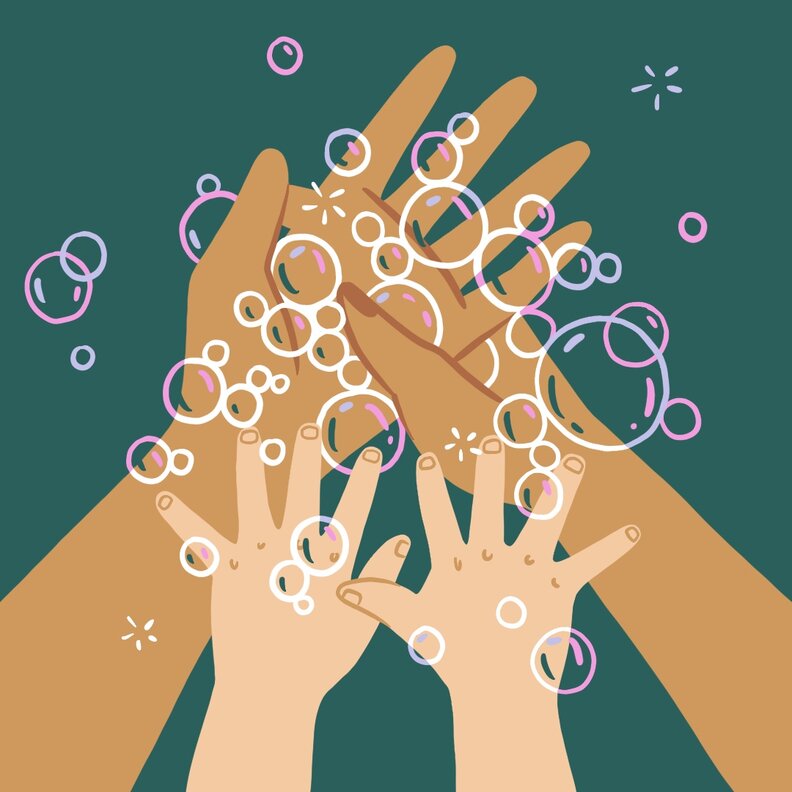
Myth: There's No Way to Prevent RSV
While there's no way to guarantee you or your family won't contract RSV, you can take preventative measures to reduce the risk. Dr. Geida recommends practicing good hygiene by washing your hands frequently and teaching young children handwashing skills early, as RSV can survive for up to 30 minutes or more on the hands.
Other habits such as, avoiding touching your face, disinfecting frequently touched surfaces like phones and doorknobs, and covering your mouth when you cough or sneeze, can also limit the spread of RSV. These preventative measures — in addition to keeping a watchful eye out for any symptoms of RSV — can help keep your family healthy. As Dr. Geida says, "Educate yourself, your friends, and [your] loved ones so that you can be empowered in making informed decisions about your and your kiddos' health."
Dr. Geida's perspective will no doubt be helpful to parents. In addition, there is a way to help protect against RSV this season: Beyfortus® (nirsevimab-alip) 50 mg and 100 mg injection can help prevent serious RSV lung infections in babies under age 1 born during or entering their first RSV season and children up to 24 months who remain at risk of severe RSV disease. Your child should not take Beyfortus if your child has a history of serious allergic reactions to nirsevimab-alip or any of the ingredients in Beyfortus. Beyfortus may not protect all children.
IMPORTANT SAFETY INFORMATION
Your child should not take Beyfortus if your child has a history of serious allergic reactions to nirsevimab-alip or any of the ingredients in Beyfortus.
Before your child receives Beyfortus, tell your healthcare provider about all of your child’s medical conditions, including if your child:
• has ever had a reaction to Beyfortus
• has bleeding or bruising problems. If your child has a problem with bleeding or bruises easily, an injection could cause a problem
Tell your healthcare provider about all the medicines your child takes, including prescription and over-the-counter medicines, vitamins, and herbal supplements. Your infant should not receive a medicine called palivizumab if they have already received Beyfortus in the same RSV season.
Serious allergic reactions have happened with Beyfortus. Get medical help right away if your child has any of the following signs or symptoms of a serious allergic reaction:
• swelling of the face, mouth, or tongue
• difficulty swallowing or breathing
• unresponsiveness
• bluish color of skin, lips, or under fingernails
• muscle weakness
• severe rash, hives, or itching
The most common side effects of Beyfortus include rash and pain, swelling, or hardness at the site of your child’s injection. These are not all the possible side effects of Beyfortus. Call your healthcare provider if you have questions about side effects.
INDICATION
Beyfortus is a prescription medicine used to help prevent a serious lung disease caused by Respiratory Syncytial Virus (RSV) in:
• Newborns and babies under 1 year of age born during or entering their first RSV season.
• Children up to 24 months of age who remain at risk of severe RSV disease through their second RSV season.
Please see full Prescribing Information, including Patient Information, for more details.
MAT-US-2409687-v1.0-11/2024
Illustrations: Monique Aimee
This article is for informational purposes only and does not substitute professional medical advice.
